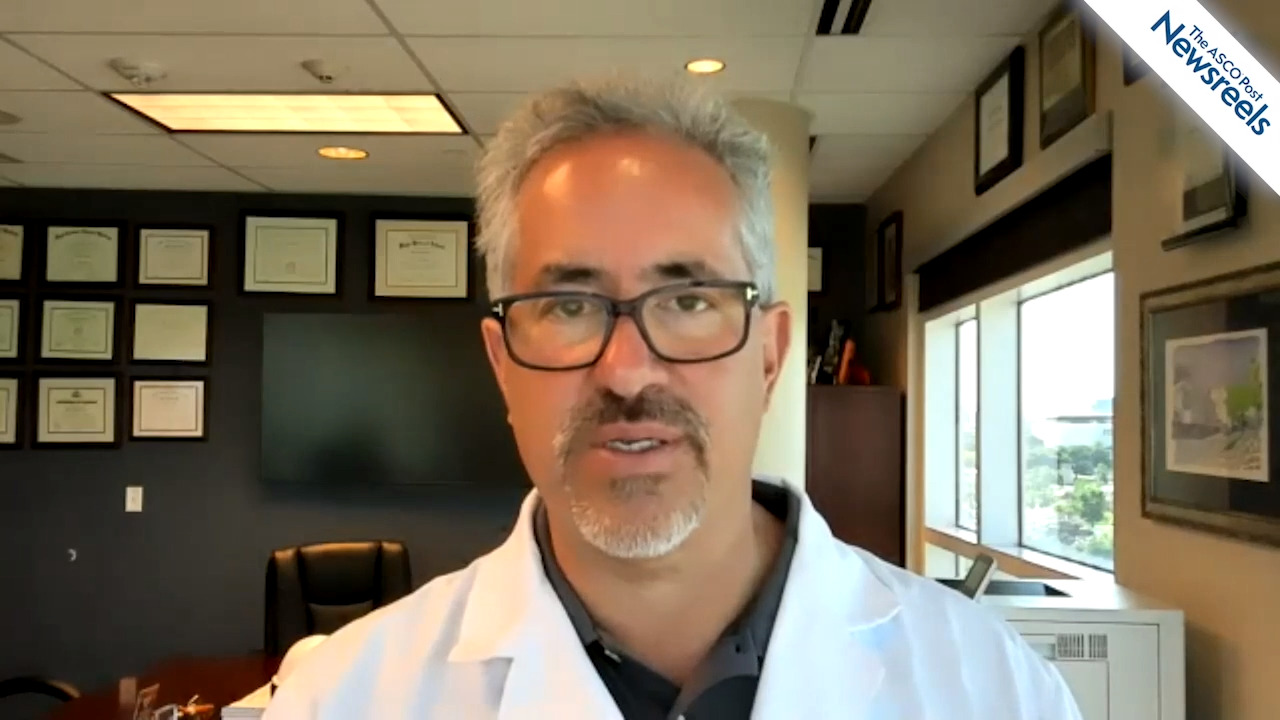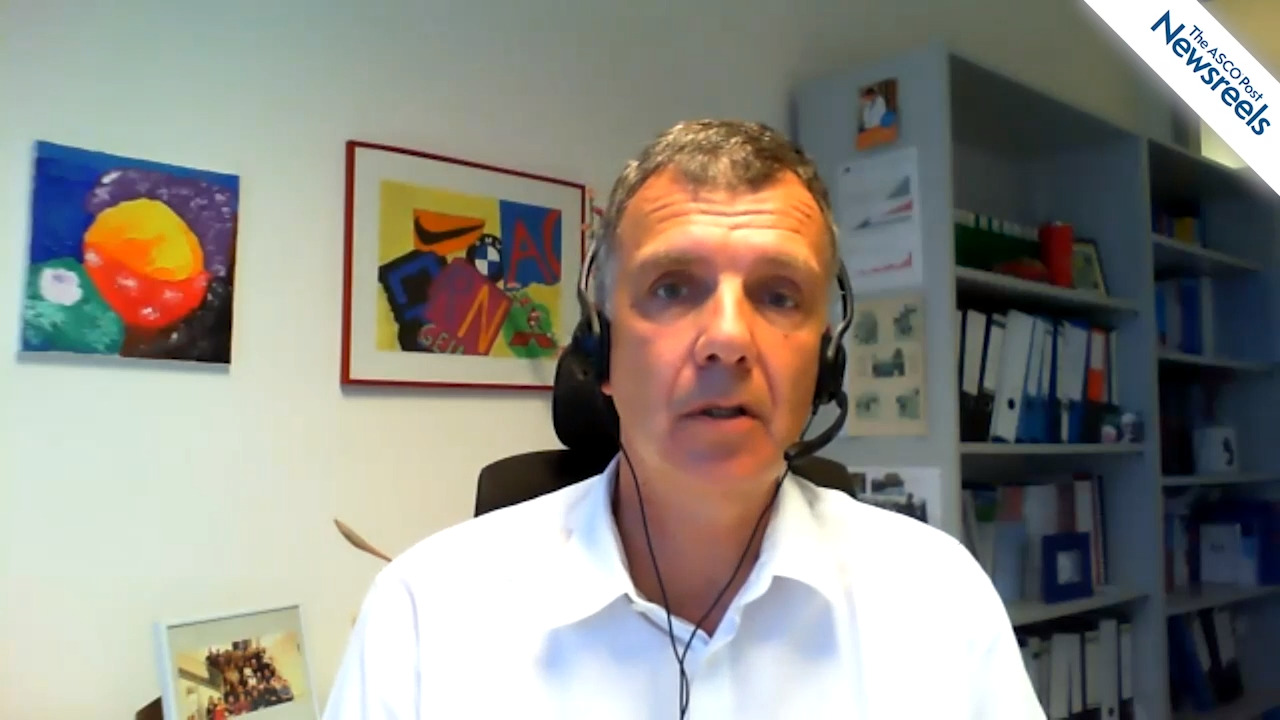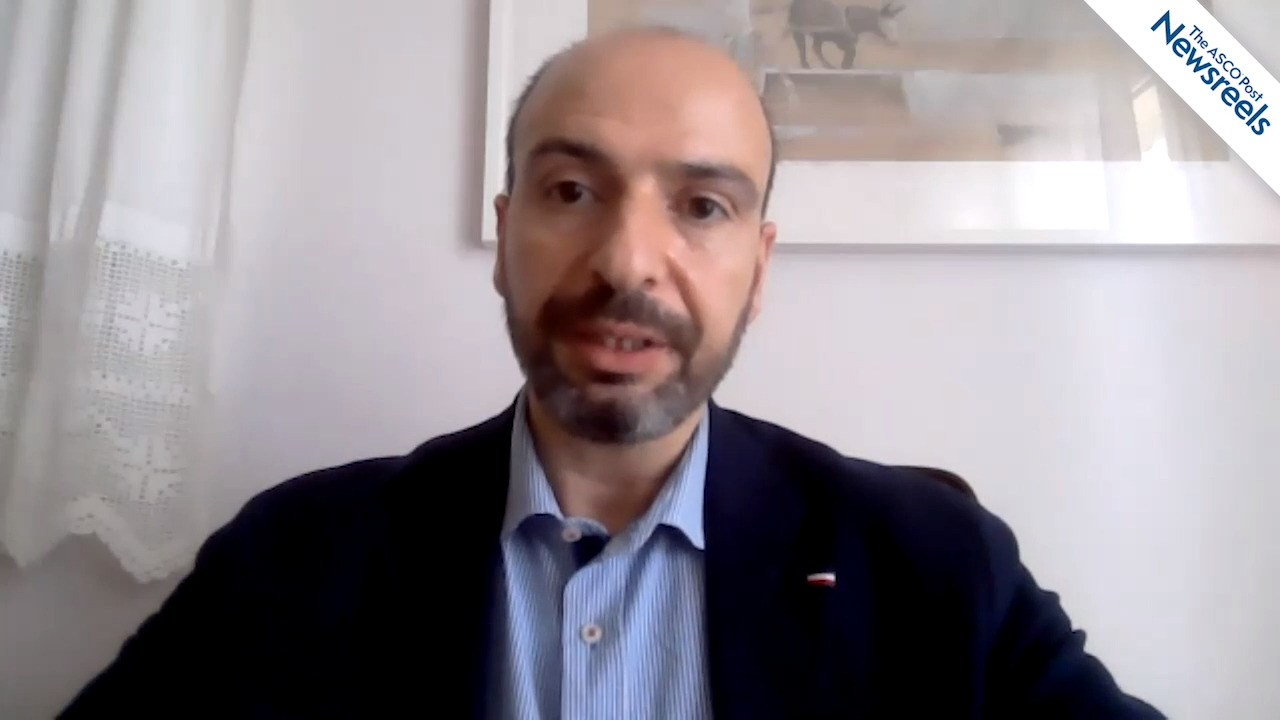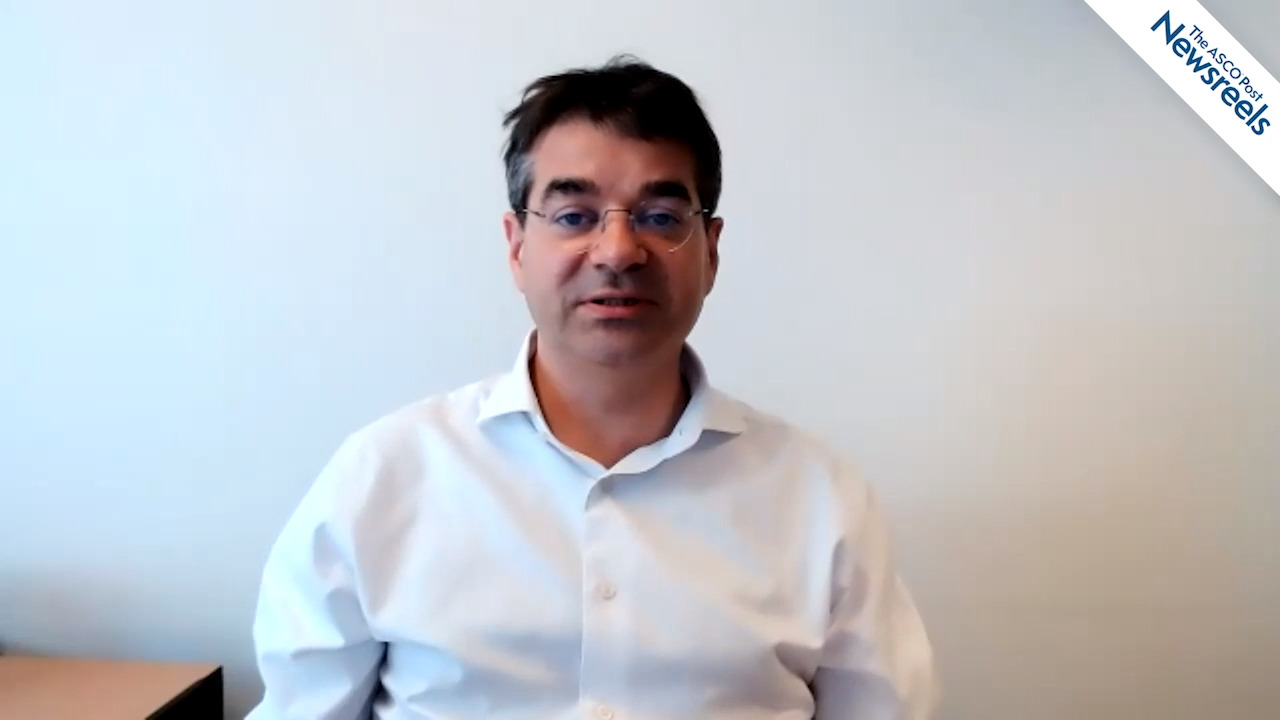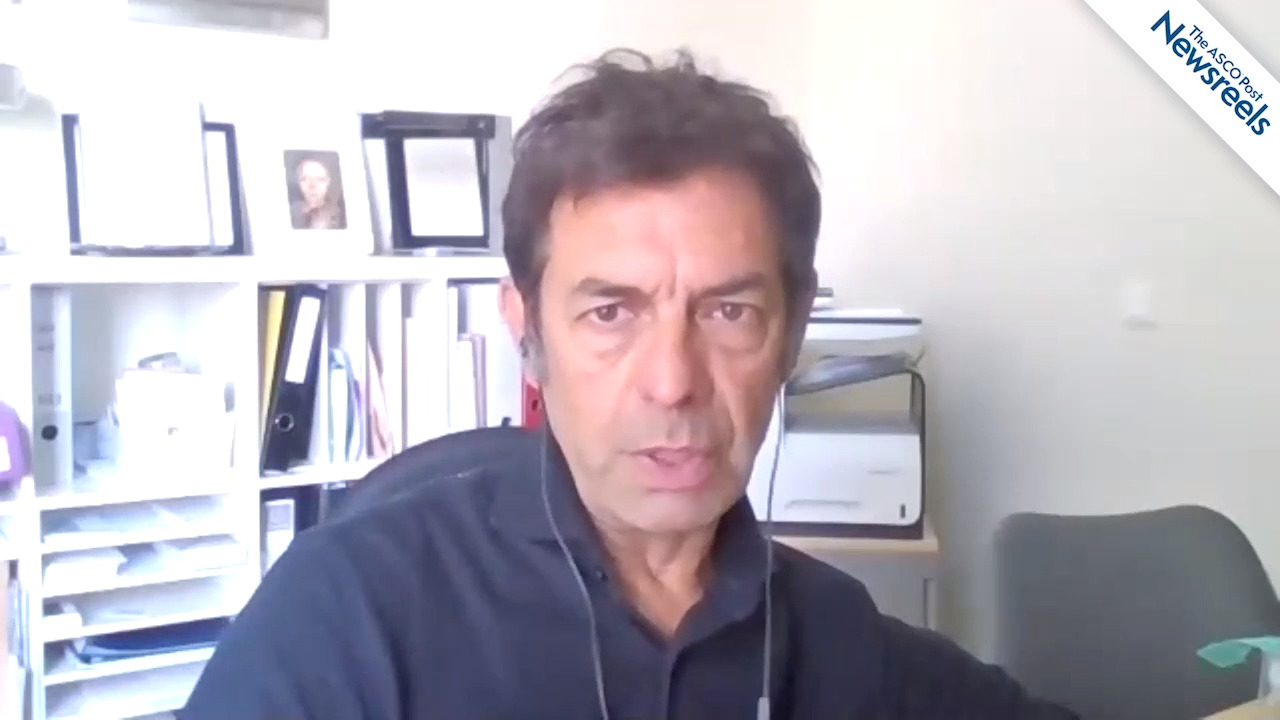Claire Harrison, MD, DM, on Myelofibrosis: Fedratinib as First-Line Therapy After Prior Ruxolitinib
EHA 2021 Virtual Congress
Claire Harrison, MD, of Guy’s and St. Thomas’ Hospital, discusses survival results from the JAKARTA and JAKARTA2 trials, which showed that fedratinib, an oral JAK2 inhibitor, significantly improved progression-free survival vs placebo as a first-line treatment for patients with myelofibrosis (Abstract S203).
The ASCO Post Staff
Ruben A. Mesa, MD, of UT Health San Antonio Cancer Center, discusses new findings on momelotinib, a potent JAK1, JAK2, and ACVR1 inhibitor with clinical activity against hallmark features of myelofibrosis such as anemia and splenomegaly. Results showed that transfusion independence was associated with improved overall survival in patients who had received momelotinib (Abstract S202).
The ASCO Post Staff
Martin H. Dreyling, MD, PhD, of University Hospital Munich Grosshadern Klinikum, discusses phase II results from the ELARA trial, which suggests tisagenlecleucel may be a promising immunotherapy for adults with relapsed or refractory follicular lymphoma (Abstract S210).
The ASCO Post Staff
Efstathios Kastritis, MD, of the University of Athens, discusses updated phase III results from the ANDROMEDA study of patients with newly diagnosed light chain amyloidosis. The trial further supports the use of daratumumab plus VCd (bortezomib, cyclophosphamide, and dexamethasone), which was shown to be clinically superior to VCd alone (Abstract S189).
The ASCO Post Staff
Arnon P. Kater, MD, PhD, of the University of Amsterdam, discusses a primary analysis of the phase III GLOW study, which, for the first time, compared the efficacy and safety of fixed-duration ibrutinib plus venetoclax with chlorambucil plus obinutuzumab for first-line treatment of older patients with chronic lymphocytic leukemia (LB1902).
The ASCO Post Staff
Philippe Moreau, MD, of University Hospital Hôtel-Dieu, discusses findings from the CASSIOPEIA trial, Part 1, on daratumumab maintenance vs observation in patients with newly diagnosed multiple myeloma who have been treated with bortezomib, thalidomide, and dexamethasone, with or without daratumumab, and autologous stem cell transplantation (Abstract S180).
